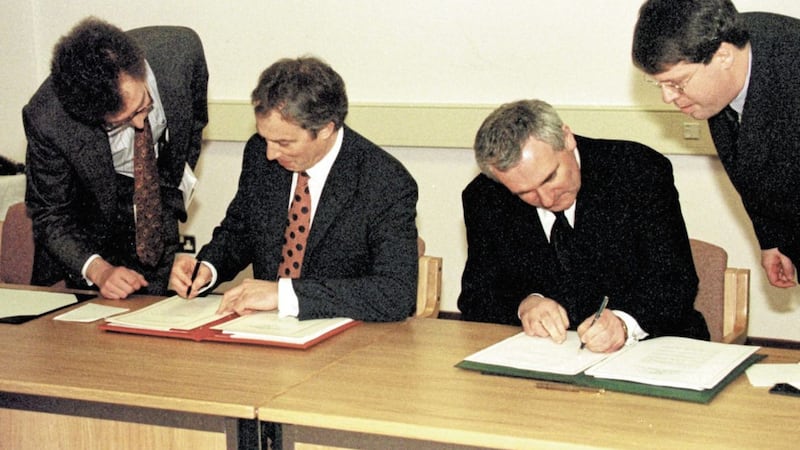WHEN I and many of the children born into the Troubles were growing up, our 'normal' was bombs, bullets, murders, brutality, heartache and loss. We knew nothing different.
Such was the savagery of this place many of us were almost desensitised to the killings and had to actually adjust to the peace when it eventually came. I think many of those who are now trashing the Good Friday Agreement and warmongering have absolutely zero clue of how grim things were here beyond the romanticised version of events that has been passed down.
Those people were afforded a reasonably normal childhood, one where they did not live in constant fear. Fear of answering their own front door after dark to an unexpected knock. Fear of bumping into the wrong crowd and being identified as either Catholic or Protestant by your school uniform or your name.
Fear of your mother or father being murdered by bomb or bullet as they went about their daily lives. Fear of walking beside an abandoned or broken down car lest it blows up. Fear of going to work and being killed just for being one religion or the other. Fear of going shopping in case a car bomb wrecks your city centre and takes your life.
Watching the door in the pub for a gunman coming in and opening up with an automatic weapon and killing you and all your friends. All normal stuff.
This fear was not felt as fear when we were growing up. They were just thoughts in the back of your head as you went about your normal day.
Everyone had thoughts about possibly being murdered in every normal scenario you can think of, but we just got on with it, put it to the back of our minds.
Everyone knows someone who was murdered doing something ordinary. A friend's Daddy going to work in the morning and coming home in a coffin. The neighbour who opened the front door and died. The aunt and uncle murdered as they celebrated their wedding anniversary in a bar. The pregnant woman who died alongside her unborn twin babies as she shopped for shoes.
The list of victims and the cruel ways they died doing ordinary stuff is ceaseless and depressing.
That was our normal. That was our everyday lives. Those were our families or people we knew. We absorbed it and we carried on with our own lives, in the back of our minds praying that our families, our loved ones, our friends would not be next.
That's how we lived pre-Good Friday Agreement.
When the Good Friday Agreement was signed I was living in a house on the Falls Road with my then boyfriend, now husband. Both of us had witnessed things children should never see and have carried that trauma through life with us.
Twenty four years ago we sat on our sofa in Amcomri Street and watched the newscaster promise a new dawn. There would be no more killing. No more looking over your shoulder. No more putting loved ones in the cold ground.
This was to be a new day, something we could hang our hope on. This was real. We would finally have peace. This place was going to be different.
For all its flaws, the Good Friday Agreement meant that the four children we went on to have didn't have to see people gunned down in the street, or worry about being shot dead on a night out for being the 'wrong religion', or grow up in a city bombed into oblivion, or watch people they love be put into the cold ground.
They would just have the normal kid things to worry about, not another dimension of horror that would leave its mark on them forever.
For all its flaws it has delivered that, mostly. We have had a few blips on the road, but that is normal when emerging from a complex conflict situation. As we celebrate 24 years since that historic day I am thankful for all those who worked hard to get us to that point.
I am grateful for the sacrifices made to bring us together. I am grateful for the thousands of people who are walking around today who might not have been had that agreement not existed.
The Good Friday Agreement should be cherished, like our hard-fought-for peace.








